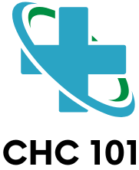The CHC Exam is a crucial step for healthcare compliance professionals seeking certification to demonstrate their expertise and commitment to upholding industry standards.
In our article, you’ll uncover essential information including:
- Eligibility criteria: What you need to qualify for the CHC Exam.
- Exam structure: The format and contents of the test.
- Preparation tips: How to best prepare for success.
Whether you’re checking eligibility, looking for study strategies, or understanding the recertification process, this article is your informative guide to navigating the CHC Exam landscape.
- Understanding the CHC Exam
- Eligibility Criteria for the CHC Exam
- The Structure of the CHC Exam
- Registration and Scheduling the CHC Exam
- Preparation Tips for the CHC Exam
- Exam Fees and Payment Process
- Day of the Exam: What to Expect
- Scoring and Results Interpretation
- Retaking the CHC Exam
- Maintaining CHC Certification
- CHC Recertification Process
- Common Challenges and How to Overcome Them
- Additional Resources and Support for CHC Candidates
- Conclusion
Understanding the CHC Exam
Taking the leap into healthcare compliance? Then the Certified in Healthcare Compliance (CHC) exam is likely on your radar. This pivotal certification showcases a professional’s commitment to upholding the highest standards of compliance within the healthcare industry. By achieving CHC certification, you demonstrate your expertise in navigating complex compliance issues, a critical skill in an ever-evolving regulatory environment.
The Health Care Compliance Association (HCCA) administers the CHC exam. Preparing for this rigorous certification process signals to employers that you have a thorough understanding of relevant regulations and the ability to implement and manage a compliance program effectively. Whether you’re an existing compliance professional looking to formalize your expertise or a newcomer aiming to make your mark, the CHC certification can be the cornerstone of your professional growth in healthcare compliance.
Eligibility Criteria for the CHC Exam
Before you can sit for the exam, you’ll need to ensure you meet the eligibility requirements. These criteria are in place to confirm that candidates have a foundational level of experience and knowledge in healthcare compliance. Here’s what is expected of you:
- Experience: You should have a minimum of 1,500 hours of work experience in healthcare compliance roles within the last two years. This requirement underscores the practical, hands-on knowledge needed for certification.
- Education: Although a specific degree isn’t required, your education can help contribute to your eligibility in terms of CEUs (Continuing Education Units).
- Professional Conduct: Candidates must agree to adhere to the HCCA Code of Ethics, ensuring that the certification maintains its integrity and standing in the professional community.
If you’re pondering whether you meet these standards, consider all aspects of your professional experience. Healthcare compliance work can take many shapes, and various roles may contribute to your eligibility.
The Structure of the CHC Exam
Diving into the CHC exam structure, you’ll find a thorough evaluation of your knowledge and skills. The exam itself consists of approximately 125 multiple-choice questions, covering a wide array of topics within healthcare compliance. You’ll have three hours to prove your mettle across several domains, including:
- Standards, policies, and procedure development
- Compliance program administration
- Screening and evaluation of employees, vendors, etc.
- Communication, education, and training on compliance issues
- Monitoring, auditing, and internal reporting systems
- Response and prevention to promote organizational compliance
Getting a grip on these topics isn’t just about memorizing facts; it’s about understanding how to apply principles and manage real-world issues that compliance officers face daily. Success on the CHC exam signifies that you’re not just knowledgeable, but also practical and resourceful in your approach to healthcare compliance.
Registration and Scheduling the CHC Exam
You’re ready to take the plunge, but what’s next? Registration is your first concrete step towards becoming CHC-certified. You’ll need to:
- Complete the application online.
- Schedule a time and date that suits you within the available testing windows.
- Choose a testing center near you.
Remember, spots can fill up quickly, especially at popular testing centers, so it’s advisable not to drag your feet once you’ve decided to commit. Your registration process will culminate in the payment of the exam fee; have your preferred payment method ready.
Preparation Tips for the CHC Exam
As you march towards the exam date, preparation becomes your most crucial task. Here are some strategies to help you tackle the CHC exam with confidence:
- Balance Your Study Techniques: Mix up flashcards, group study sessions, and timed practice tests to engage different learning muscles.
- Utilize Official Resources: The HCCA offers practice exams and the CHC Candidate Handbook, which can be instrumental in your preparation.
- Tap Into Community Wisdom: Join networks like HCCAnet, where professionals discuss compliance issues and share insights relevant to the exam.
An in-depth understanding and strategic preparations will empower you to walk into the testing center poised and ready for the challenge ahead.
Exam Fees and Payment Process
Taking the CHC exam does involve a financial commitment. The exam fee is one aspect you’ll need to plan for as you budget for your certification journey. Fees are payable online during the registration process and are a standard part of professional certifications.
The examination fee for HCCA members and non-members differs, so it’s a good idea to consider membership for its potential benefits and cost savings. The HCCA regularly updates its fee structure, so you’ll want to check the official HCCA website for the most current information on costs and policies. It’s essential to understand the investment you’re making in your future and to approach it with clarity and commitment.
Day of the Exam: What to Expect
It’s the big day, and you’re ready to take that all-important step. To ensure a smooth experience, here’s what you need to know:
- Arrive Early: Give yourself plenty of time to check in and settle down.
- ID Requirements: Don’t forget to bring a valid government-issued ID. This is a must for entry into the testing center.
- Personal Belongings: Familiarize yourself with the testing center’s policies. Personal belongings are often restricted, so understand ahead of time what you can and cannot bring.
Your focus should be razor-sharp, undistracted by logistical concerns. You’ve prepped, you’ve practiced, and now it’s time to perform.
Proceed into the testing room calm, collected, and confident, knowing that you’re equipped with all the necessary knowledge and strategies to succeed on the CHC exam.
Scoring and Results Interpretation
After ticking off the last question on your CHC exam, you might be both relieved and anxious to know your scores. The scoring of the CHC exam is straightforward: you’ll receive a score report immediately upon completion. The passing mark is determined by the HCCA based on the relative difficulty of the exam form.
If you see a passing score, congratulations! You’ve demonstrated exemplary knowledge in healthcare compliance. Should your results fall short, don’t be discouraged. This score is not a reflection of your professional capabilities but simply an indicator of areas requiring further study.
As you interpret your results, pay attention to the breakdown of scores by sections. This insight can guide you on where to focus your efforts if you plan to retake the exam or wish to strengthen your professional knowledge in certain areas. Find additional details and support on how to understand your test scores on the HCCA examination page.
Now, if you didn’t achieve the passing score, let’s talk about what comes next.
Retaking the CHC Exam
Should you need to retake the CHC exam, know that this isn’t the end of your journey. You are allowed to retake the exam, but keep in mind there are limits to consider. Familiarize yourself with the retake policy on the official HCCA website, which outlines the necessary waiting period and fees involved.
View this as an opportunity for further growth. Hone in on the areas that need improvement, drawing from the feedback your score report provides. It can be disheartening to face the exam again, but with targeted preparation, your chances of success are greatly improved.
Maintaining CHC Certification
Your hard work has paid off—you’re now certified! But remember, the CHC certification isn’t a one-time achievement; it’s a commitment to ongoing education and excellence in healthcare compliance. As a part of this commitment, you are required to obtain a specific number of Continuing Education Units (CEUs) to maintain your certification status.
CEUs are a measure of your continued participation in professional development and learning. They ensure that your skills and knowledge stay current in a field that’s constantly evolving. You can earn these units through a variety of methods such as attending conferences, participating in webinars, or completing relevant training sessions. Make sure to keep abreast of the CEU requirements and submission deadlines by frequently checking the HCCA’s CEU policies.
CHC Recertification Process
With the passing of time and accumulation of knowledge, you’ll reach a point where it’s time for recertification. This typically occurs every two years. The recertification process reminds you that healthcare compliance is an ever-changing field, and your dedication to staying up-to-date emphasizes your status as an expert.
To start your recertification, you’ll be required to complete a form and pay a recertification fee. Make sure you’ve recorded and reported your CEUs, as these are essential for the process. All specific details, including timelines and educational requirements, are spelled out on the HCCA recertification page.
Common Challenges and How to Overcome Them
Throughout your journey, you may face challenges, from navigating the preparation process to maintaining the vigour for continuing education. Common hurdles include finding time for study, absorbing the extensive material, and balancing professional obligations with exam preparations.
To conquer these, here are a few tried-and-true strategies:
- Set a Schedule: Dedicate specific times for studying, and stick to them.
- Connect with Peers: Sharing insights and resources with peers can lighten the load.
- Stay Organized: Keep your study materials and CEUs in order, so you never feel overwhelmed.
Remember, every practitioner who undertakes the CHC exam or strives for recertification has faced these same challenges. You are following a path well-trodden by successful professionals who value the credibility the CHC credential brings to their career.
Additional Resources and Support for CHC Candidates
You’re not alone on this journey. A plethora of resources and support systems are at your disposal. From the HCCAnet social network for peer-to-peer interaction to CHC Practice Examinations, these tools have been crafted to aid your success. Consider attending healthcare compliance events which not only offer opportunities for CEUs but also allow you to network and learn from healthcare compliance veterans.
Conclusion
Embarking on the CHC exam journey is a bold step in fortifying your future in healthcare compliance. As we have traversed through these CHC exam FAQs together, remember that each question marks a signpost toward your success. With diligent preparation, a commitment to ongoing learning, and the vast array of support resources at your fingertips, you’re well-equipped to navigate the waters of the CHC certification process.
Never underestimate the power of this credential. The CHC certification is not only a testament to your knowledge and skills, but it is also recognition by the healthcare compliance community of your dedication to ethical, effective practice. Take every step with confidence, and approach the CHC exam and subsequent recertification as essential milestones in a rewarding, impactful career. Engage with the resources available, lean on your professional community for support, and always strive for the highest standards of compliance excellence.
Are you ready to take the next step? Set out on your CHC exam journey today and join the ranks of certified healthcare compliance professionals elevating the field to new heights.

